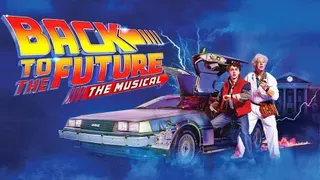June 28, 2015
Larry Kramer in Love & Anger
Kilian Melloy READ TIME: 4 MIN.
The title of HBO's new documentary about the playwright and activist Larry Kramer reads almost like text on a movie poster: "Larry Kramer in Love & Anger." The wording suggests a sense that Kramer's life has, in some sense, been as much a work of theater as the street protests that ACT UP used to organize.
That would only make sense, given Kramer's penchant for drawing on his own life for plays like "The Destiny of Me" and "The Normal Heart." And if the occasional well-placed episode of theatricality can alert, awaken, or spur social and political change, then there's no reason not to embrace it as a tactic, especially when the stakes are life and death.
That's exactly what the stakes were in the 1980s and early 1990s, when Kramer was front and center in a fight to get America's politicians and bureaucrats to pay attention to the AIDS crisis -- a plague, as Kramer passionately maintains, that those in charge were happy to ignore as long as it was gays who were dying. With sickness, death, terror, and hatred raining down on the gay community, Kramer took on everyone, on every side, gay and straight alike, from grinning morality merchants like Jerry Falwell to defiantly promiscuous gays who saw sleeping around as a way of fighting back. His point was simple, if flamboyantly dressed up with vitriol and a too-easy way with racial and ethnic slurs: AIDS was killing people, and the only way to fight it was to put politics and ideologies aside, take responsibility, and follow a medically safer code of conduct. Not incidentally, Kramer saw it as necessary to our essential humanity to move away from a fixation on the mechanics of sex and toward an appreciation of sexuality as an avenue for the expression and cultivation of intimacy and love.
"Larry Kramer in Love & Anger" makes use of archival and new interviews, clips from movies and fined stage plays, and footage of meetings, speeches, and demonstrations to create a portrait of a man who was tenacious, loud, and extremely sure of himself. In certain crucial respects, Kramer found was simply the right man at the time when AIDS came crashing down; he'd already enraged the gay community with his novel "Faggots," another semi-autobiographical work in which, ever the scold, he took gays to task for prioritizing promiscuity over the hard work of commitment. Suddenly, his message of greater sexual discretion and thoughtfulness wasn't simply a matter of not waking up one day to find oneself old and alone; it was a matter of waking up still alive.
Kramer has never backed down from a fight, and he's not afraid of being seen as pugnacious, or getting in the faces of those he wants to ensure hear his message. He recognizes the value in his confrontational approach, and he uses that aggressive style to galvanize, and to draw attention. In using himself as a character in his own drawn-from-life play "The Normal Heart," Kramer says, "I wasn't trying to present myself as the hero. I was trying to present myself as the pain in the ass."
That, he was. Controversial, uncompromising, hard-charging, Kramer has inspired terror in some and fury in others. It's hard to imagine Kramer as the boy he describes himself as once having been: "Shy... very shy."
Many, if not most, viewers will have a sense of who Kramer is in terms of his writing and his vigorous advocacy. What might surprise is the reminder that he was, in his youth, a screenwriter for films like "Women in Love" (with its famous nude wrestling scene) and "Lost Horizon," a flop that nonetheless paid Kramer so handsomely that, with some financial help from his older brother Arthur, he became independently wealthy.
The documentary also touches, ever so briefly, on Kramer's massive novel "The American People: A History," the first volume of which, "Search for My Heart," was published in late April. The reviews were mixed, but somehow it's hard to imagine Kramer caring much about that. Kramer has always been about tough love and strong community, with his role in achieving those things being, as one attendee at his wedding put it, "the pain in the ass that everybody needed him to be."
Kramer himself put his view of the book this way: "I don't think you can be a people until you have a history." One interviewee credits Kramer as being the man who "turned this community into a community," which provides a useful context for understanding why Kramer has invested so much of his life on the book. (He started writing it in 1981.) If Kramer is, in some sense, a founding father of the GLBT community -- and a strict one, at that -- he's also a major figure in the very history he's attempting to impart.
Producer and director Jean Carlomusto positions the camera near Kramer's hospital bedside as he recovers from a liver transplant, and points the lens at everyone from Kramer's old friends and associates to gay novelists and culture warriors who came along in his wake, Karl Soehlein and Michelangelo Signorile among them. The effect feels a little patched together, but it's also an effective film that provides a valuable overview of a remarkable life.
"Larry Kramer in Love & Anger" premieres on HBO on Monday, June 29, at 9:00 p.m. ET/PT.
Kilian Melloy serves as EDGE Media Network's Associate Arts Editor and Staff Contributor. His professional memberships include the National Lesbian & Gay Journalists Association, the Boston Online Film Critics Association, The Gay and Lesbian Entertainment Critics Association, and the Boston Theater Critics Association's Elliot Norton Awards Committee.






